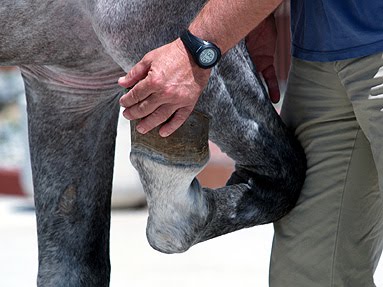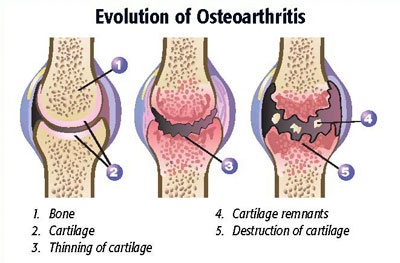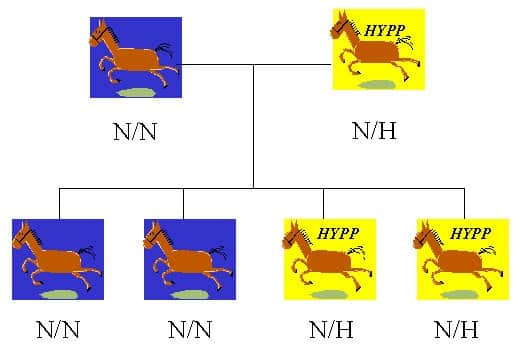 One of the more common and perplexing questions that can face a horse owner is whether or not they should get a second opinion on their horse, say, after receiving a troubling diagnosis. It’d be easy for me to say, “Sure, why not?” but it turns out that this can be a bit of an agonizing issue for many people. For example, in addition to the expense, some people may fell like their own veterinarian will be offended if they get a second opinion; it’s almost as if they feel that they are being unfaithful to him or her.
One of the more common and perplexing questions that can face a horse owner is whether or not they should get a second opinion on their horse, say, after receiving a troubling diagnosis. It’d be easy for me to say, “Sure, why not?” but it turns out that this can be a bit of an agonizing issue for many people. For example, in addition to the expense, some people may fell like their own veterinarian will be offended if they get a second opinion; it’s almost as if they feel that they are being unfaithful to him or her.
So, it turns out that the decision to seek a second opinion can be a bit of a thorny one for some folks. Thought I’d give you a few of my thoughts.
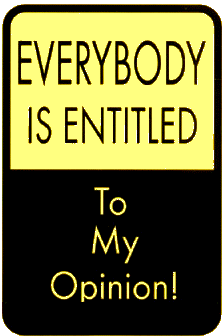 There are no real rules to tell you when you should get a second opinion about what may be going on with your horse. However, if you’re unsure about something, and especially if you’re being advised to do something that is either 1) expensive, 2) lacks good evidence of effectiveness, or 3) hard for your to understand, you should discuss the following questions with your veterinarian:
There are no real rules to tell you when you should get a second opinion about what may be going on with your horse. However, if you’re unsure about something, and especially if you’re being advised to do something that is either 1) expensive, 2) lacks good evidence of effectiveness, or 3) hard for your to understand, you should discuss the following questions with your veterinarian:
1) What are the reasons for the diagnostic procedure or treatment being recommended? Get specific information; “Because it might help,” simply isn’t a good enough answer.
2) What information from a diagnostic procedure that is being recommended might change the treatment plan, and how? There is absolutely no reason to do any test or procedure unless it is going to change what you were going to do anyway.
3) Are there any, other, perhaps cheaper, perhaps equally effective, forms of treatment available? For example, one could ask this question of any number of treatments when compared to rest (see, for example, stem cells).
4) What will be the likely result if you don’t have the procedure or treatment performed on your horse? From my point of view, if the treatment or procedure doesn’t significantly benefit your horse, there’s no point in doing it.
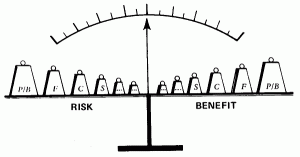 5) What are the risks? There’s no procedure that is completely free of risk. It’s a sad and frustrating fact that all effective treatments or procedures also come with side effects. But the risks should be well-defined. It’s not good enough to just treat with something and see what happens; you owe your horse better than that.
5) What are the risks? There’s no procedure that is completely free of risk. It’s a sad and frustrating fact that all effective treatments or procedures also come with side effects. But the risks should be well-defined. It’s not good enough to just treat with something and see what happens; you owe your horse better than that.
ASIDE: Just to repeat: any procedure that has an effect also has a possible side effect. Some treatments are sold as being free of side effects, but, honestly, if someone tells you that a treatment has no side effects, it’s a good indication that the something is actually ineffective. Otherwise stated, not only does it not have side effects, it also doesn’t have any effects.
6) How is the procedure or treatment expected to improve your horse’s health or quality of life?
If, after discussing these questions with your veterinarian, you feel confident that a diagnostic procedure or treatment is in the best interest of your horse’s health, you probably don’t need a second opinion. If, however, you have doubts about whether the procedure or treatment will give you useful information, or if the benefits don’t seem to be worth the costs, you may want to seek a second opinion.
 Second opinions are simply a way to insure that your horse is getting the best care. Second opinions are a part of good veterinary practice. Heck, in some cases, when I come across a challenging case, I’m the one who is looking for a second opinion. A competent veterinarian shouldn’t take it as an insult if you decide to get further advice about your horse’s care. In fact, a competent veterinarian should encourage you to ask questions, should look for information to support the treatment that’s being prescribed, and even ask for second opinions him- or herself if there’s a question. Everyone working with you should only want one thing: the best for your horse.
Second opinions are simply a way to insure that your horse is getting the best care. Second opinions are a part of good veterinary practice. Heck, in some cases, when I come across a challenging case, I’m the one who is looking for a second opinion. A competent veterinarian shouldn’t take it as an insult if you decide to get further advice about your horse’s care. In fact, a competent veterinarian should encourage you to ask questions, should look for information to support the treatment that’s being prescribed, and even ask for second opinions him- or herself if there’s a question. Everyone working with you should only want one thing: the best for your horse.
But here’s the thing. If you do want a second opinion, there are two important things to remember:
1. Seek Qualified Advice
The best second opinion is from someone else who has expertise and experience in dealing with the same problem that your horse has. A second opinion is not worth much unless it is given by someone with knowledge of and expertise that specifically pertains to your horse’s problem. As such, if you have concerns about a possible problem that’s seen on your horse’s X-ray, seek an opinion from someone who looks at a lot of X-rays, such as a veterinary radiologist. Or, if you’re concerned about advice being given about your lame horse, ask a second opinion from someone who has lots of experience treating lame horses, don’t just call up your Aunt Mary to see what she might have done in that situation when she had horses 20 years ago.
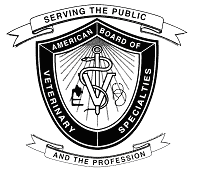 One good way to judge the qualifications of someone is to find out if he or she is certified in any of the specialties of the American Board of Veterinary Specialties. Many such experts work for university veterinary teaching hospitals, or in referral facilities. By choosing a consultant who is board certified in an appropriate specialty, you know that he or she has completed years of residency training and practice in his specialty and has demonstrated his competence by successfully completing a rigorous examination. That said,practitioners in the field often have more experience in dealing with conditions such as lameness than do university-based practitioners (even if they don’t have a huge hospital and an army of eager students at their disposal).
One good way to judge the qualifications of someone is to find out if he or she is certified in any of the specialties of the American Board of Veterinary Specialties. Many such experts work for university veterinary teaching hospitals, or in referral facilities. By choosing a consultant who is board certified in an appropriate specialty, you know that he or she has completed years of residency training and practice in his specialty and has demonstrated his competence by successfully completing a rigorous examination. That said,practitioners in the field often have more experience in dealing with conditions such as lameness than do university-based practitioners (even if they don’t have a huge hospital and an army of eager students at their disposal).
Under any circumstances, however, beware of “experts” that are “certified” in unrecognized specialties. The word “certification” gets thrown around a lot these days, but it’s not a guarantee that the person who has been certified is any sort of a real expert.
2. You are in charge
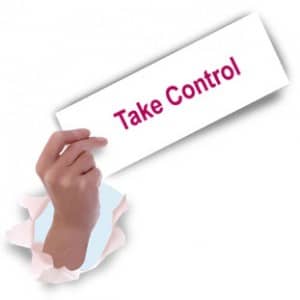 I find that a lot of people seem to feel like their hostages in the veterinary-client-patient relationship. Remember, you’re paying the bill. You should expect two things. First, your questions should be answered. Second, those answers should make sense.
I find that a lot of people seem to feel like their hostages in the veterinary-client-patient relationship. Remember, you’re paying the bill. You should expect two things. First, your questions should be answered. Second, those answers should make sense.
There’s one other thing. Second opinions are not necessarily the right opinions; a second opinion is not necessarily better than a first opinion. There may be disagreement. And if there is, the final decision will be yours.
The best diagnostic and treatment decisions should be made with all the facts. Don’t hesitate to discuss concerns with your veterinarian. If those concerns aren’t being addressed to your satisfaction, by all means, get a second opinion. Your horse is counting on you!




